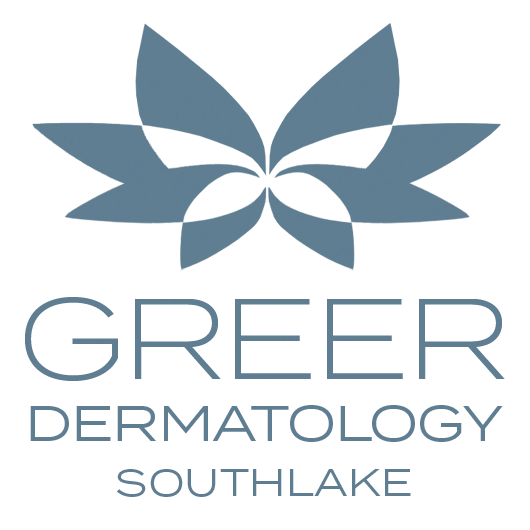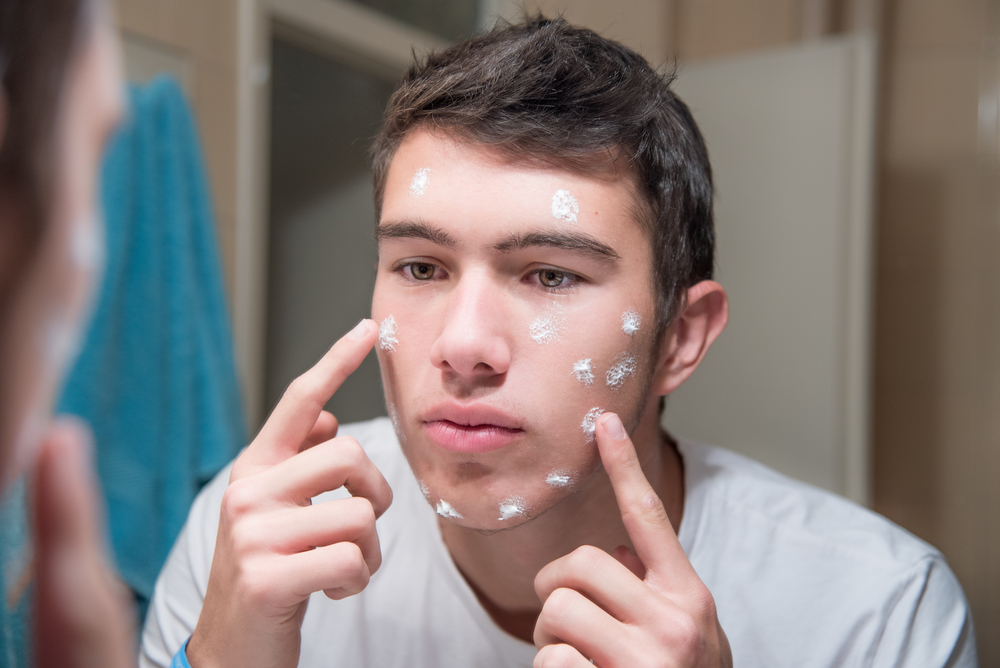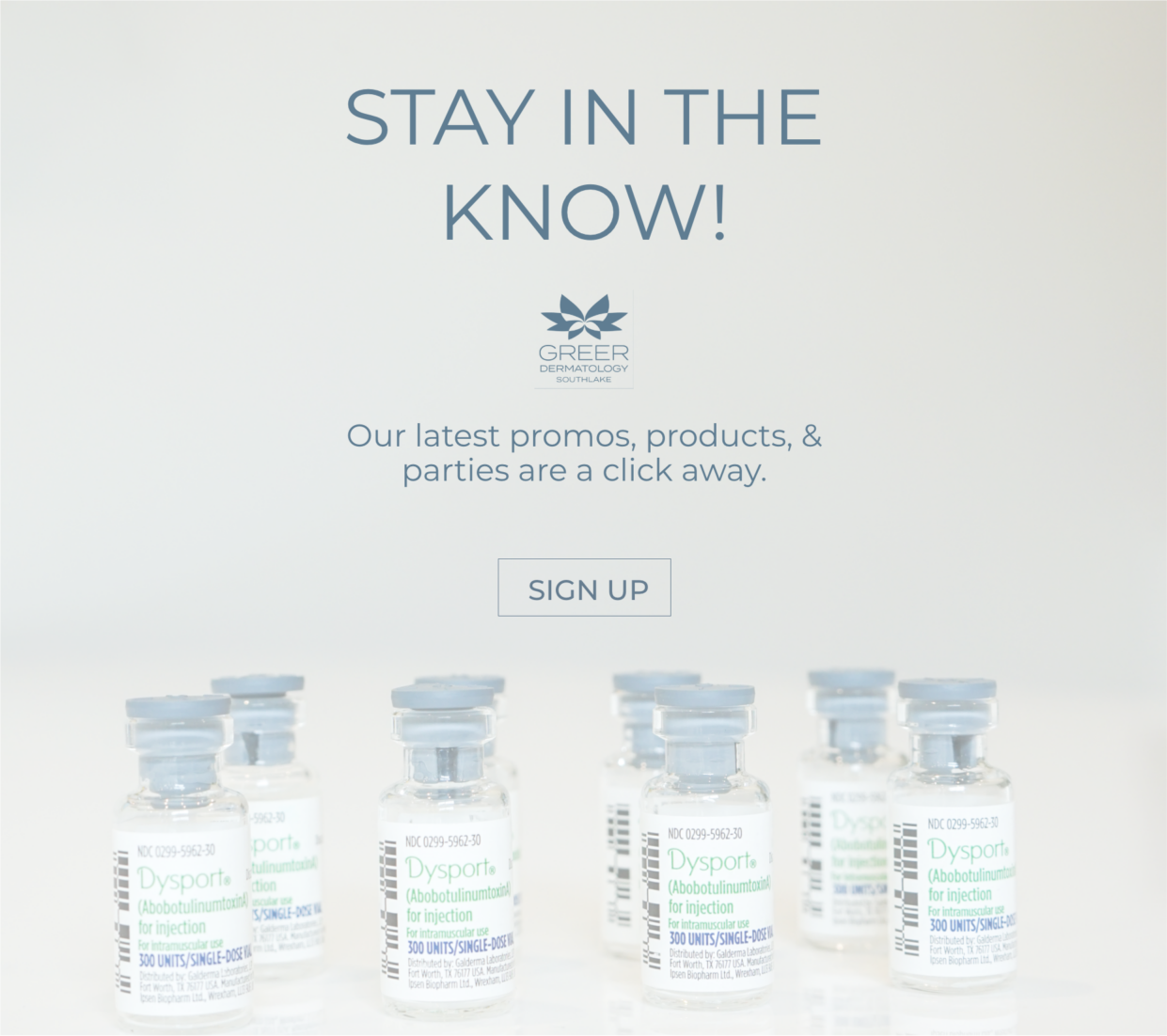Teenage Acne
For our young adult patients, August in the North Texas area often means two-a-day football practices, getting ready for school to start, and oppressively hot summer temperatures. This amounts to lots of perspiration, stress and, unfortunately, acne flare-ups.
Q: “Is it true that eating sugary foods cause my skin to break out?”
Dr. Greer:
Diet plays a part in our overall health, and this includes how our body’s largest organ, the skin, functions. Studies have found that high glycemic index diets, meaning high sugar or carbohydrate foods, can worsen acne outbreaks. There are a few foods I encourage eating if you suffer from acne:
- Tree nuts, especially walnuts, these contain Omega-3.
- Kidney beans have zinc which combats acne. Chili is a great option that is tasty!
- Dark chocolate (70% cocoa or higher) gives an antioxidant boost.
- Salmon, more Omega-3!
- Eggs contain zinc and selenium leading to clearer skin.
Q: Why does my skin start to break out with summer sports and football season?
Here in “Dragon Nation,” Southlake football is in full swing. My teens on the field need to start their regimen early to establish a good routine and prevent the dreaded start-of-school breakouts. The rub that occurs with chin straps causes additional acne (acne mechanica), and short shower times in the locker room make following a good skincare regime tough. Our office can help educate and simplify day-to-day skin regimens for maintaining a clear complexion.
Adult Acne
Acne flares in adulthood unfortunately affect women more than men. The breakouts experienced tend to be more cystic, more painful and can often take much longer to resolve.
Q: “Why am I breaking out at this age?”
Dr. Greer:
Adult acne is predominantly driven by changes in hormones and stress. Women often experience fluctuating hormones around their menstrual cycle, during pregnancy, perimenopause and menopause, and after stopping (or starting) birth control pills.
Stress triggers the body to produce androgens that stimulate oil gland production and dreaded acne flares. As stress is often part of our day-to-day experience, acne can often be recurring.
Genetics may play a role in our breakouts as well. Research* suggests that some patients may be predisposed, so if a parent, brother or sister has acne, this may also contribute to acne later in life.
Five Preventive Steps You Can Take to Deter Acne Breakouts
To run defense against the likely causes that contribute to both teenage acne and adult acne, here are some strategies you can use.
Consult Your Dermatologist
If you are still experiencing breakouts, call our office to schedule an appointment and we can give you more assistance. Acne should not be a struggle. We understand it is often an upsetting condition, and we can be more aggressive with treatments if that’s what you need. Refining your daily routine as well as considering prescription topicals medications can make a large improvement.
Eat a Low-Sugar Diet and Drink Plenty of Water
Although there is no definitive large scale study linking diet to acne at this time, there is mounting evidence that associates acne with diets that are high in glycemic index. A smart preventive strategy is to eat a lower-glycemic diet (avoid white rice, white bread, potatoes). Opt for lean proteins, and choose complex carbohydrates and grains along with lots of fruits and vegetables with a variety of colors and omega-3 fats, along with a daily supplement of 30mg zinc gluconate. Drinking water instead of a sugary beverage is a healthful option that will keep skin hydrated.
Be Consistent in Your Skin Routine
Your morning and nighttime skin care ritual can be immensely helpful in preventing breakouts. Cleansing your skin of makeup and sunscreen each night and using your prescribed medications faithfully allow large improvements to happen more quickly.
Read Labels on Hair and Skin Products
Know what is in your moisturizer, cleanser, sunscreen, and other products. According to the American Academy of Dermatology, one of these four terms should indicate that the ingredients are non-pore clogging:
- Non-comedogenic
- Non-acnegenic
- Oil-free
- Won’t clog pores
Check Your Medications
Acne can also be a side effect of some medications, or could indicate an underlying medical condition. So, these potential effects would be best discussed with your physician.
Wishing everyone a sun-safe end to summer, and beautiful skin.
Dr. Sara Greer
*Source: American Academy of Dermatology



